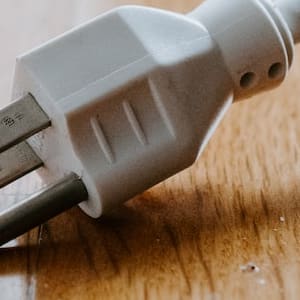plug in: Idiom Meaning and Origin
What does ‘plug in’ mean?
The idiom *plug in* means to connect or insert a cable or electrical device into an outlet or socket. It can also be used figuratively to describe the act of becoming involved in or connected to something.

Idiom Explorer
The idiom "tie in" means to connect or relate something to another thing in order to create a relationship or association between them. It is often used in the context of linking different ideas, concepts, or events together to form a cohesive whole.
The idiom "rush in" means to enter or engage in something hastily or without considering the consequences.
The idiom "reel in" means to attract, entice, or persuade someone to do something or become involved in a situation. It often implies luring or capturing someone's attention or interest, as if pulling them in with a fishing reel.
The idiom "read in" figuratively means to be informed or to gain knowledge about a particular topic or subject.
The idiom "putty in someone's hands" means to be completely under someone's control or influence, easily manipulated or influenced by that person.
The idiom "put to work" means to utilize or employ someone or something for a particular purpose or task.
The idiom "put through" means to connect or transfer someone in a phone call, often by using a switchboard. It can also mean to make someone experience a difficult or challenging situation.
The idiom "put the wood in the hole" means to complete or finish a task or project. It is often used to emphasize the final step or action needed to achieve a desired outcome.
Decoding the Power
One of the idioms commonly used in the English language is "plug in." In the context of technology and electronics, this phrase refers to connecting a device to a power source or an outlet to supply it with electricity.
The origins of the idiom "plug in" can be traced back to the invention of electrical appliances and the need to establish a physical connection for their operation. In the late 19th century, as electricity became more accessible to households and businesses, reliable power sources were needed. Electrical devices required a direct connection to an outlet through a plug, which served as a physical interface between the appliance and the power source.
Over time, the phrase "plug in" expanded beyond the realm of electrical appliances and came to represent the act of making any necessary connection to enable the functioning of a device or system. This idiom transcended the literal meaning of physically plugging in a device and evolved into a metaphorical expression. It is now commonly used in various contexts beyond technology, such as hooking up a USB drive to a computer or even tying in to a social network or a new community.
In addition to its practical usage, the idiom "plug in" also carries a metaphorical connotation, pertaining to the idea of connecting or fully engaging with a particular situation or environment. It suggests the notion of actively participating and becoming involved in a specific scenario or system. For instance, in a professional context, "plugging in" may refer to integrating into a new team or understanding the dynamics of a specific workplace.
While the idiom "plug in" predominantly maintains its literal and metaphorical meanings, it is worth noting that it might carry different connotations depending on the context or industry in which it is used. For example, in the field of software development, "plug in" could refer to adding additional functionality to an existing program through the use of software extensions or plugins.
Overall, the idiom "plug in" has become deeply ingrained in the English language, reflecting the technological advancements and societal changes that have occurred over the years. It symbolizes the act of establishing a connection, both literally and metaphorically, and emphasizes the importance of actively engaging with one's surroundings.
As language continually evolves, it is fascinating to observe how idioms like "plug in," "hook up," and "tie in" adapt and expand their meanings to encompass various aspects of human experience.
Example usage
Examples of how the idiom "plug in" can be used in a sentence:
- She needs to plug in her phone to charge it.
- Don't forget to plug in the power cord before turning on the computer.
- They hired an expert to plug in the new software and set it up for the company.
More "Technology" idioms



